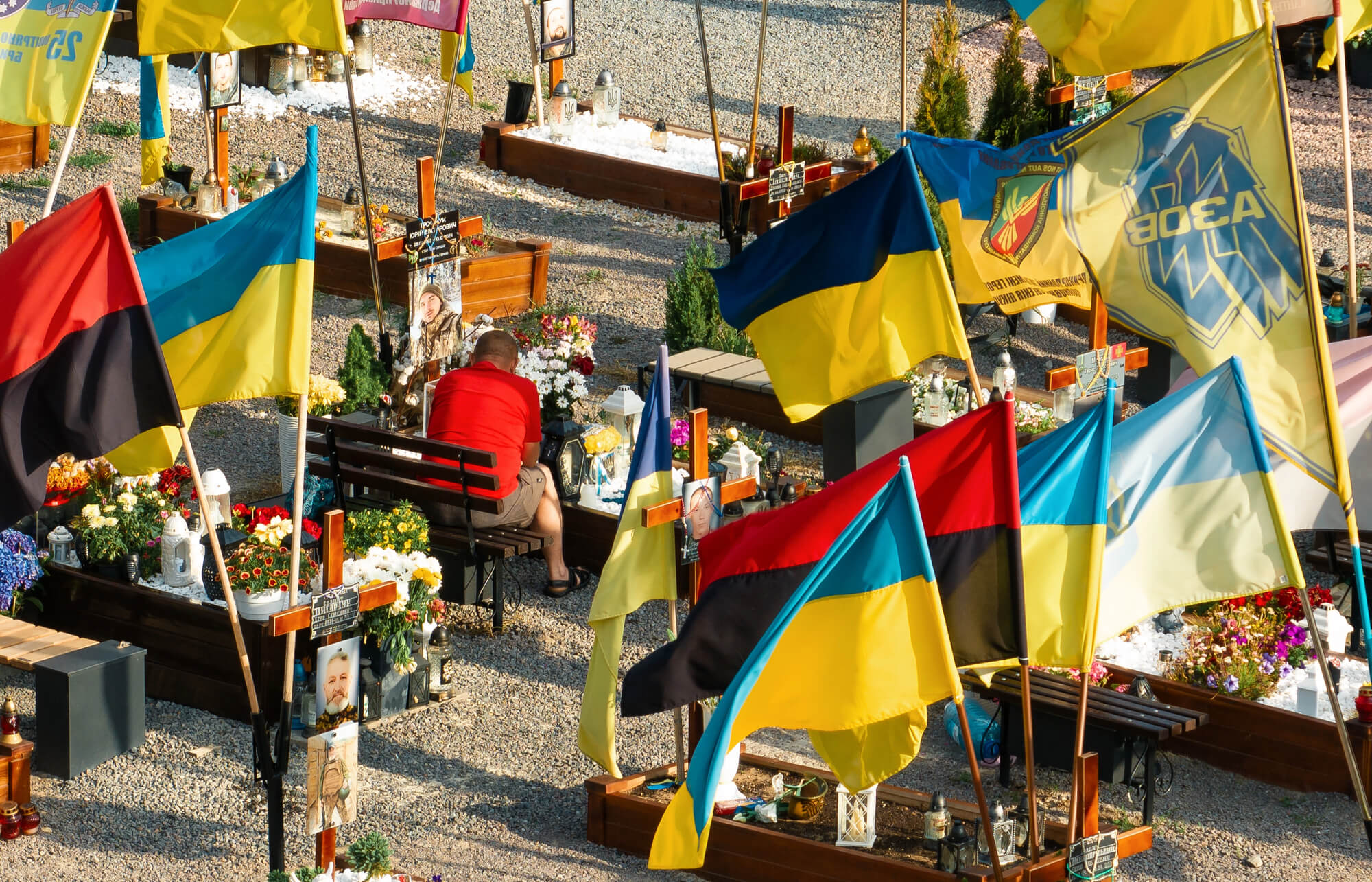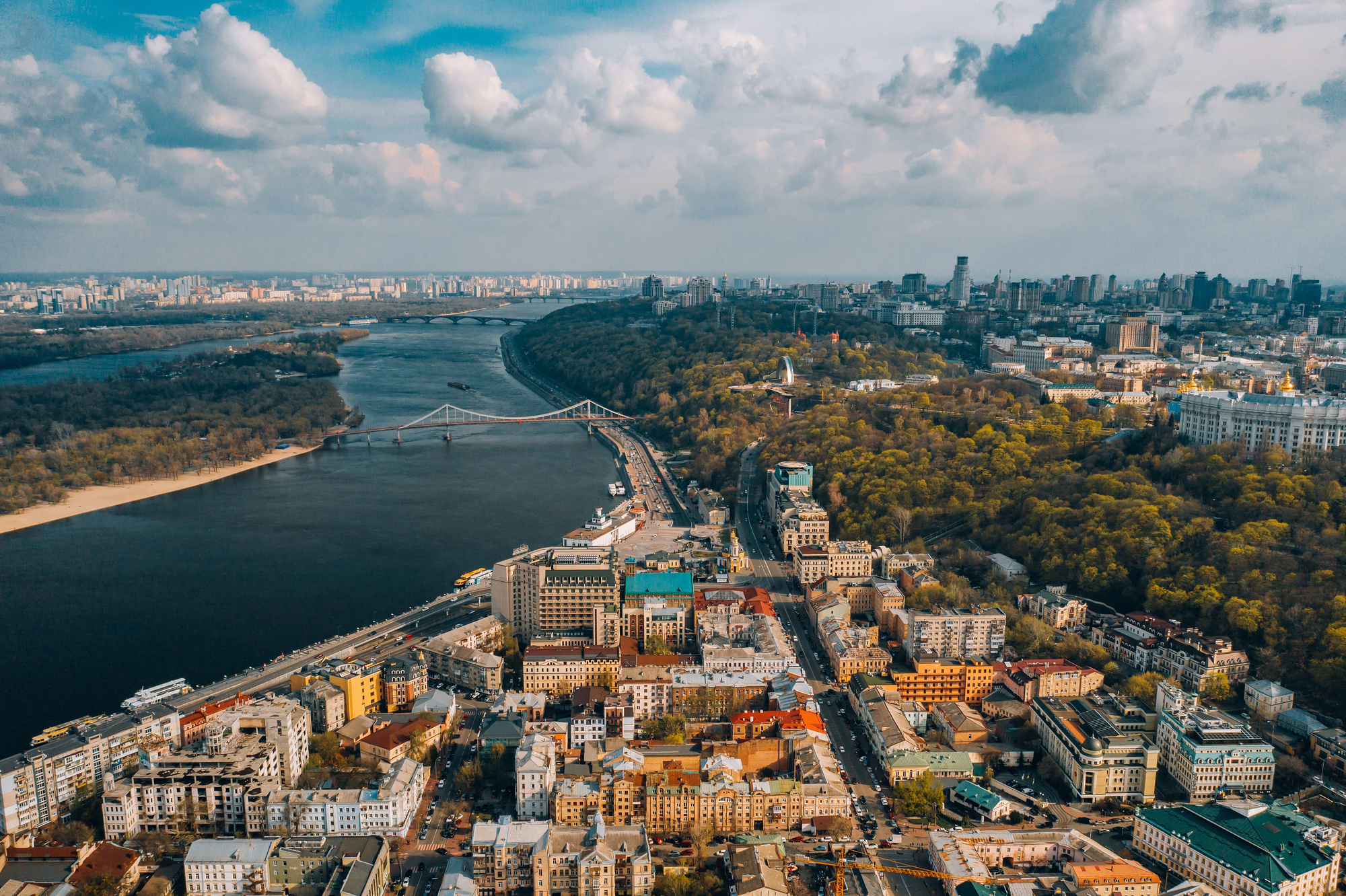The Russian invasion has caused vast destruction in Ukraine, and postwar reconstruction will be expensive. The victory of freedom in Ukraine should offer an example for a better world, but this victory will be incomplete as long as the damages wrought by Russian forces remain unrepaired.
Hopes for a more peaceful world depend on maintaining the basic principle that international military aggression cannot succeed. Putin’s fundamental goal in this war has been to prevent Ukraine from becoming a positive example of successful democratic development that might inspire people in Russia to turn against his own corrupt autocratic rule. He could still achieve this goal, even after the defeat of his military forces, if the devastation of his war left a permanent legacy of suffering in Ukraine. Thus, generous offers of reconstruction assistance from the US and Europe will be appropriate, benefitting the broad global interests of donors as well as the recipients.
It can certainly be argued that Russians have a moral obligation to pay reparations for the destruction that their forces have caused, but trying to compel Russia to pay a massive reparations debt could be very dangerous. Efforts to extract reparations from Germany after WWI ultimately poisoned postwar German politics, setting the stage for the rise of a militant regime that launched a second world war which was even more costly than the first. This precedent would argue against trying to compel Russia to pay more after the war than the value of its foreign assets that have already been seized.
However, the cost of Ukraine’s reconstruction will be a fraction of what the US and its European allies expect to spend for defence and security over a period of several years. Reconstruction assistance can be considered a good investment by the standards that we use to evaluate defence budgets, because success in rebuilding in Ukraine will be a strong positive precedent for encouraging a more peaceful international order. But the assistance funds must be spent effectively.
A basic lesson from the Marshall Plan for postwar reconstruction of Europe in 1948 was that foreign reconstruction assistance can be much more effective when it helps to promote reforms that will be fundamental for successful future development (Price 1955) [1]. Reforms that have been widely considered vital for Ukraine’s future development include strengthening ties with the EU and increasing the capacity of local governments to serve their communities.
The first of these considerations has motivated a recent recommendation that all foreign reconstruction assistance should be coordinated and supervised by an agency of the EU (Gorodnichenko et al. 2022) [2]. That is, even reconstruction assistance from the US should be channelled through an EU agency, because government officials in Ukraine can benefit from the experience of working with the EU’s fiscal regulations and standards, given that closer integration with the EU could be vital for Ukraine’s future prosperity.
Reconstruction work must be under the direction of officials of Ukraine’s sovereign democratic government. But donors should recognise that, in 2022, the people of Ukraine have been fighting to defend a system of government that includes responsible locally elected officials as well as nationally elected officials of the central government.
The current system of local governments is the result of decentralisation reforms that were implemented between 2015 and 2020 [3]. One effect of these reforms has been to ensure that every part of Ukraine has elected local leaders who have real power to organise their communities and maintain local defence (Keudel and Huss 2023). Indeed, since the Russian invasion began in February 2022, there have been regular reports of mayors leading their communities in resisting the Russian invaders. But in 2014, the old Sovietstyle centralisation of power in Ukraine meant that, in some vulnerable regions, it was hard to find any trusted local leaders who would organise their communities to defend the state’s local authority against even a small band of Kremlin-supported insurgents. So, the extraordinary increase in Ukraine’s ability to resist Russian invasion between 2014 and 2022 owes much to the empowerment of democratic local governments. As Brik and Murtazashvili (2022) have observed, citizens have rallied not just in support of President Zelenskyy in Kyiv, but also to defend their locally elected mayors and community councils.
To support and advance the development of these local governments in Ukraine, we may suggest that a significant share of foreign reconstruction assistance should be set aside for use by local governments. That is, while the largest portion (perhaps two-thirds) of foreign assistance should be directed by officials of Ukraine’s national government, a significant portion (perhaps one-third) should be budgeted for allocation by local reconstruction boards that consist of locally elected officials. In each district of Ukraine, an official of the European assistance agency could work with the local mayors and other locally elected officials to help them develop and implement a plan for allocating their district’s share of the locally directed portion of foreign assistance. In this way, the process of rebuilding the infrastructure of Ukraine can also help to promote the development of local governments’ capacity to serve their communities, which is vital for Ukraine’s successful democratic development.
Stationing foreign assistance coordinators in local offices throughout Ukraine can also help to improve monitoring of how assistance funds are used. For example, if a nationally administered project failed to deliver its promised local benefits, foreign assistance coordinators could hear about the problem from the mayor of an adversely affected community. Conversely, the use of assistance funds by local governments should be monitored by appropriate agencies of the national government. Thus, an active engagement with Ukrainian officials at both the local and national levels can help a foreign assistance agency to identify problems with the use of its funds by officials at either level.
There are other important reasons for recommending some decentralisation of authority over foreign assistance to Ukraine. Costs of postwar reconstruction may be three to five times larger than Ukraine’s 2021 GDP, and so foreign assistance will be needed on a scale that vastly exceeds prewar government spending in Ukraine. We can hope that a well-designed system of fiscal oversight by independent agencies from Ukraine and from donor countries can minimise corrupt diversion of these funds; but even with the best fiscal controls, there will be great potential profits to be earned by the contractors who get responsibility for managing reconstruction projects. If these profits are concentrated among a small group of businesspeople who have connections to the top national leadership, then the result could be to create a new class of oligarchs to dominate Ukraine for many years to come. Decentralising some authority over foreign reconstruction assistance can help to spread the profits of reconstruction among a broader class of businesspeople throughout Ukraine. That is, if government officials cannot be prevented from steering lucrative contracts to their friends and cronies, spreading profits of reconstruction among the thousands of businesspeople who have connections to their local mayor’s office may be better than concentrating all these profits in the pockets of the few businesspeople who have connections in the President’s office [4].
Ukraine’s success in resisting a massive Russian invasion in 2022 has been based on its people’s confidence in the ability of an independent Ukraine to provide a better future for them, and reforms to establish responsible local governments have been one key factor contributing to this confidence. After the war, the international community should generously support the development of an independent democratic Ukraine that can build peaceful and mutually beneficial relations with all its neighbours. Above all, the postwar reconstruction of Ukraine should aim to fulfill its people’s hopes for a better future, for which they have given so much.
[1] See also De Long and Eichengreen (1991).
[2] See also Becker et al. (2022).
[3] For evidence of improvements in local public spending resulting from the decentralization reforms, see Harus and Nivyevskyi (2020)
[4] This point has been raised by Garton Ash (2023).
References
Becker, T, B Eichengreen, Y Gorodnichenko, S Guriev, S Johnson, T Mylovanov, K Rogoff, and B Weder di Mauro (2022), A Blueprint for the Reconstruction of Ukraine, CEPR Press.
Brik, T and J Murtazashvili (2022), “The Source of Ukraine’s Resilience: How Decentralized Governance Brought the Country Together”, Foreign Affairs, 28 June.
De Long, J D and B Eichengreen (1991), “The Marshall Plan: History’s Most Successful Structural Adjustment Program”, NBER Working Paper No. 3899.
Garton Ash, T (2023), “Ukraine in our future”, New York Review of Books, 23 February.
Gorodnichenko, Y, I Sologoub, and B Weder di Mauro (eds), Rebuilding Ukraine: Principles and Policies, CEPR Press.
Harus, A and O Nivyevskyi (2020), “In Unity There is Strength: The Effect of the Decentralization Reform on Local Budgets in Ukraine,” Vox Ukraine, 6 August.
Keudel, K and O Huss (2023), “National Security in Local Hands: How Local Authorities Contribute to Ukraine’s Resilience”, PONARS Eurasia Policy Memo 825, Georgetown University.
Myerson, R (2023), “Perspectives on Ukraine and the Russian invasion”, ECCO Insights, 18 January.
Price, H B (1955), The Marshall Plan and Its Meaning, Cornell University Press.
#helpUkraine_helptheWorld
This publication is a part of a collection of essays initiated by the National Bank of Ukraine. Famous economists, political scientists and historians, experts recognized in the world, volunteered to share their thoughts and arguments on why helping Ukraine is helping the world. The complete book of essays can be found via the link.
Attention
The author doesn`t work for, consult to, own shares in or receive funding from any company or organization that would benefit from this article, and have no relevant affiliations



